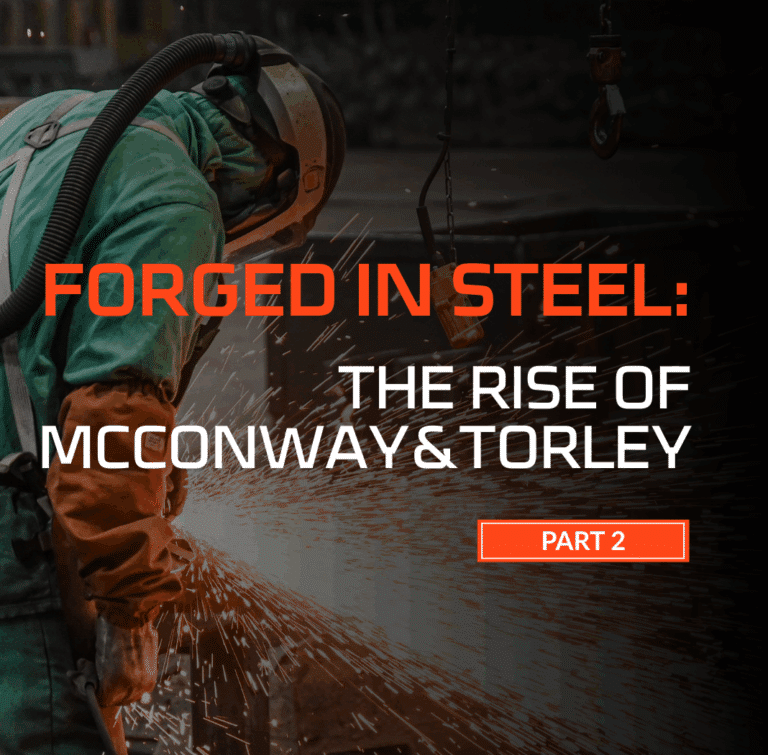
Next on our journey is the story of McConway & Torley, whose Pittsburgh facility has been in continuous operation since January 1, 1869—the year before the completion of the first U.S. transcontinental railroad. The company began as Lewis and Company, founded by Samuel Lewis, William McConway, and John Torley. Lewis quickly withdrew from the business, and the company became known as McConway, Torley and Company. In 1882, it was renamed McConway & Torley to reflect the two active partners at the time: William McConway and Frances Torley, the widow of John Torley.
Originally focused on saddlery hardware and malleable iron castings, McConway & Torley shifted direction in 1873 when it acquired the patent for the Janney Coupler—an industry-first automatic coupler invented by Eli H. Janney. That same year, the company discontinued its saddlery line and began manufacturing couplers, buffers, and other essential castings. By 1904, the company had grown from just 35 employees to over 1,500, with the plant covering six acres and eight additional acres used for storage, located along 48th Street in Lawrenceville where it still operates today.
William McConway was a central figure in the company’s early success. After emigrating to Pittsburgh at age 7, he began working by the age of 12 following just five years of formal schooling. He married twice, with his second wife being Josephine Eaton, daughter of a well- known Pittsburgh merchant, and together they raised eight children. While McConway & Torley remained in Lawrenceville, the family lived on Lexington Avenue. In addition to running the company, William McConway held several other key positions throughout his life, including director roles at Second National Bank, Union Switch and Signal, and Westinghouse Electric and Manufacturing Company. He also served as President of Allegheny Cemetery, where he is buried, and was a trustee of both Carnegie Institute of Technology and Elizabeth Steel Magee Hospital, as well as a board member of the Pittsburgh Chamber of Commerce.
Throughout the late 19th and early 20th centuries, McConway & Torley remained at the forefront of innovation in the rail industry. The original knuckle-type coupler it produced became the prototype for all modern couplers in the United States. The company continued to lead with advances such as the bottom shelf coupler and the SY40 short-nosed yoke, positioning McConway & Torley as a dominant manufacturer of couplers, yokes, strikers, knuckles, and specialty castings.
In the 1940s, the company expanded into wartime manufacturing. Shortly after Pearl Harbor, the Army Department tasked McConway & Torley with producing ballistic alloy armor castings for military tanks. The facility was upgraded and successfully met the challenge from April 1942 through June 1944. Modernization efforts continued in the 1970s, with additional updates in 1996 and again in 2014, helping the company remain one of the most efficient steel foundries in the world.
Today, McConway & Torley continues to be the leading manufacturer of standard couplers and car-connecting systems. We are one of just four remaining coupler producers globally and proudly cast all products in the U.S. Our Pittsburgh facility boasts a highly experienced and dedicated workforce and holds both ISO 9001 and AAR M-1003 certifications. As the original designers of the Janney automatic coupler, we continue to serve the rail industry with innovation, precision, and a legacy that spans more than 150 years.




